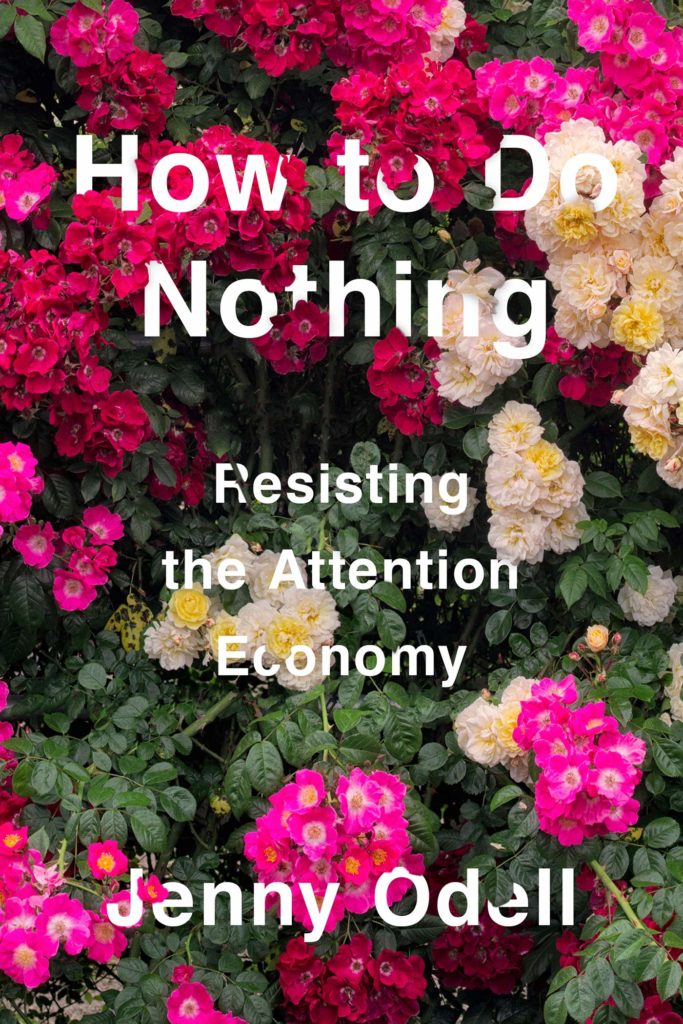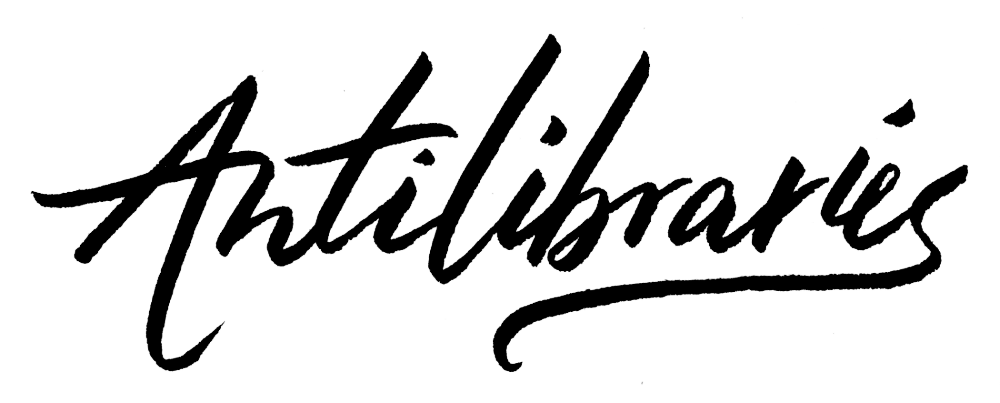How to Do Nothing: Resisting the Attention Economy
By Jenny Odell

Note, this is one I have read; I still need to add metadata reflecting that!
Quite a nice hybrid between, as Odell notes, self-help and activist field guide — as well as memoir, history, art, naturalism and more!
Short enough to get through in a few hours but also dense with good ideas and references; I came away with dozens of books and artworks it would be interesting to look up and learn about further.
A few things I particularly enjoyed learning about:
- The idea of bioregionalism, and the key takeaway of the importance of grounding oneself both in time, and in a specific place (nice quote: “groundedness requires actual ground”), not only to gain greater awareness on a personal level of where you are / what’s around you, but because we’re enmeshed in a kind of web of mutual responsibility with our environment and it’s important to make this tangibly felt.
- The idea of structures like parks, libraries, museums, labyrinths, that “hold open a contemplative space”, a kind of expanded middle ground between active and passive experience. And related, the idea of “third spaces” (physical or otherwise) where you can apply your attention in ways that may “enlarge and proliferate it, to improve its acuity”. Many reasons this kind of space is important, including for incubation, decentering oneself, creating room for ambiguity and surprise encounters… Another quote I liked: “Mixed neighborhoods create public simultaneous thinking, many perspectives converging on the same moment at the same time, in front of each other”. Public simultaneous thinking — I love that!
- The need for context — all kinds of context! — resonates a lot. Loved the description of aiming for an “ecology of contexts” rather than a “contextual monoculture”. Making me think about how to better spend my time both on- and offline immersing myself in a wider variety of contexts.
- The idea of reframing, and imagining e.g. acts of refusal as not simply negation but disruption / inversion. Similarly, seeking experiences that are transformative or disorienting in a positive sense, altering perception…I liked the example of Blender and how the infinite possible variations in “rendering” a scene apply to attention, too.
- I enjoyed learning about “Community Memory”, an early community BBS that served as a kind of spatiotemporally grounded social network, and thinking about how this ethos is being extended now with various decentralized web projects (Mastodon, Scuttlebutt, etc.) A couple key aspects of this kind of thing include: communication being grounded in a particular context, and being guided by intentionality — a conscious, directed decision to connect / share particular things at a particular time to particular people. I think this space right here, and niche forum communities in general, can be a good example of this! Also appreciate the emphasis of plurality; makes me want to work more to bring this sort of discussion into physical space as well, and generally experiment more…
Continue the discussion at athenaeum.antilibrari.es
17 more replies

Reading this right now and really enjoying it! I’m about halfway through currently, but a few ideas that are already really making me think–
The impossibility of escape, and the better route of resisting in place instead, via subversion of social norms. Helped me understand why I love so many societal rebels like Bartleby the Scrivener
The role of art to make you see your world with fresh eyes and newly sustained attention, both as an audience member and a maker of art. Made me realize that I personally draw as a form of meditation, especially when drawing from observation/life–it forces me to really slow down and pay close attention to my subject. I always feel refreshed afterward.
The unethical-ness of trying to create a better world via design alone, since it makes the designer a figure in power who makes decisions on behalf of others, sort of controlling their minds. Even if you have their best interests in mind, it still removes some aspect of free will. As a product designer, this is making me think hard about what I do (and giving me a healthier perspective on user testing results where the user doesn’t do what I want )
)
“The impossibility of escape” is such an important topic. All too often we see people saying “just quit Facebook! just move to a better state! just leave your shitty job!” etc, not recognizing the overwhelming amount of privilege and resources it takes to do any of those things! It’s a big reason I get frustrated when tech “geniuses” start talking about colonizing Mars etc: no, we need to make things work here, in our world, in our immediate environment. It may not sound as exciting or cool, but it’s where the real work happens. And it doesn’t really help anyone to completely remove yourself from society either.
Definitely made me think more of how I can be a better person right where I am today instead of getting lost in fantasies of dropping everything and moving to a cabin in the woods (where I’d be miserable anyway!!)
For those who enjoyed the book (which I haven’t read yet!) I deeply enjoyed this conversation between Jenny Odell and Ezra Klein, two very smart and lovely people: https://www.vox.com/ezra-klein-show-podcast/2019/5/23/18636332/jenny-odell-how-to-do-nothing
They keep coming back to a phrase from (lovely writer/designer/artist in her own right!) Sara Hendren of artists as “orchestrators of attention.” Odell gives an example of a fellow artist who organized a “performance” of watching the sunset. After the sun set, the audience broke out in applause.
This also relates to her description of the “context collapse” on social media. Algorithmic feeds optimize for engagement item by item, but fail to meaningfully curate items together in a way that feels intentional or temporally and narratively coherent. Feeds are poor quality (if addicting) orchestrators of our attention. The result leaves us disoriented. She also talked about this in an excerpt I read in The Paris Review:
My biggest personal takeway from what I’ve read and heard from her so far is the importance of seeking out meaningful communities for yourself, where you’re not shouting into an abstract group of disparate connections and hoping for the best, but instead “saying the right things to the right people at the right time.” To people who are engaged in collaborating toward common goals.
@saltzshaker yes!! I’ve been thinking about context collapse a lot since reading that book. It really does explain a lot of the churn and pointless frenzy of social media drama too.
I like to think that @brendan is trying to create a more context-aware space here on this forum, which has fewer people and is obviously focused on a single topic and not well suited to one-off hot takes.
I also liked her focus on getting to know your local environment and community. Has anyone done any activities that were inspired by reading this book or hearing Jenny Odell speak? (Hikes, attending community meetings, no phone time…?)
I’ve definitely been trying to hike more, or walk more in general. I also changed my phone to grayscale to make it significantly less appealing to use (Apple does have a handy accessibility shortcut where you can triple tap the home button to switch between modes, so I can go back to color quickly if I need to – pretty handy!)
Started journaling a bit, calling people more… I wouldn’t say these changes have been super dramatic (all stuff I’d do anyway, but not as frequently). But I do think I can confidently say the book’s had a lasting effect on how I see the world.